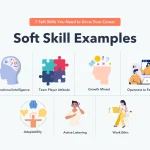Negotiation Strategies: How to Get What You Want in a Deal
Negotiation is an art that we all practice in our daily lives, whether we’re aware of it or not. From haggling at the market to discussing a job offer, the ability to negotiate effectively can make a huge difference in the outcome. But how does one turn the tide of a deal in their favor without coming across as pushy or, on the flip side, too passive? Here are some time-tested strategies to help you negotiate better and get what you want out of any deal.
Understand Your Goals (And Theirs)
Before you even start the negotiation, know clearly what you want to achieve. What is your ultimate goal? Also, consider what the other party might be aiming for. By understanding both sides, you can be better prepared for the twists and turns of the negotiation process. When we know what we want and what our negotiation partner might want, we’re in a stronger position to find common ground and a deal that works for everyone.
Do Your Homework
Knowledge is power, especially in negotiations. Research everything you can about the person or organization you’re dealing with. The more you know about your counterpart’s requirements, their strengths, weaknesses, and bottom lines, the better positioned you will be to make an offer that they can’t refuse or negotiate terms favorable to you without looking like you’re asking for the moon.
Build a Rapport
People are more inclined to make deals with someone they like and trust. So take a few moments at the beginning of your negotiation to engage in small talk and establish a positive, friendly atmosphere. However, always remain professional and focused on the task at hand. A warm and professional attitude can often be just as persuasive as the numbers you’re presenting.
Listen More Than You Speak
Good negotiators are also good listeners. While it’s important to clearly present your case, it’s equally important to listen to the other party. This gives you valuable information that you can use to steer the negotiation. Furthermore, when you listen, you make the other person feel respected and heard, which can help in building the trust essential to any good business relationship.
Communicate Clearly and Confidently
Be straightforward with what you want, without being aggressive. Clear communication means your terms, conditions, and limits are understood, which reduces the chance of misunderstandings later on. Confidence shows that you believe in what you’re proposing, which can be contagious – if you seem like you’re doubting your position, why shouldn’t they?
Be Prepared to Walk Away
This is perhaps one of the most powerful strategies in your negotiation toolkit. Knowing when to walk away – and being willing to do so – puts you in a position of power. Being overly desperate for a deal can often lead to a poor outcome. If the terms are not in your favor and no amount of negotiating is changing that, be prepared to walk. Often, the willingness to walk away can lead to the other party reconsidering their stance.
Find the Win-Win
A successful negotiation usually ends with both parties feeling like they’ve won something. When you propose solutions that benefit both you and your counterpart, you’re more likely to come to a satisfactory agreement. Always think in terms of ‘win-win’ rather than ‘win-lose.’ This approach fosters goodwill and leaves the door open for future dealings.
Practice Patience
Patience is essential in negotiation. Sometimes the process can be long and frustrating. But by being patient, you give yourself the chance to consider all the details and avoid making hasty decisions that you might regret later. Remember, often the best deals come to those who wait.
Use Silence as a Tool
Silence can be incredibly powerful in negotiations. Instead of rushing to fill the silence with concessions or lowered demands, use it to let the other party consider your offer. People often feel uncomfortable with silence and will rush to fill it, potentially revealing more about their position or making a concession.
Know Your BATNA
BATNA, or your Best Alternative to a Negotiated Agreement, is your fallback plan if the negotiation doesn’t go as hoped. Knowing your BATNA gives you an edge because you have already considered what actions you’ll take if you don’t reach an agreement. This knowledge can also give you more confidence to push for a better deal since you’re not cornered into a take-it-or-leave-it scenario.
Avoid the Anchor
In negotiations, the first number that gets thrown on the table tends to act as the ‘anchor’ from which all subsequent offers are made. If you’re not careful, this can quickly put you at a disadvantage. Whether you’re buying or selling, try to avoid being anchored by making the first offer, based on the research and understanding of the value of what’s being negotiated.
Don’t Fear the “No”
Getting a ‘no’ can be discouraging, but it can also be an opportunity. A ‘no’ doesn’t always mean the end of a negotiation; it can be the starting point for deeper discussions. Use a ‘no’ as a chance to ask more questions and understand exactly the points of disagreement. Sometimes, the ‘no’ is simply a step towards a more creative and satisfying ‘yes.’
Stay Calm and Positive
It’s easy to get caught up in the emotions of negotiation, especially if things get heated. However, maintaining a calm and positive demeanor helps keep the negotiation on track and professional. Getting angry or showing frustration can weaken your position and potentially damage relationships.
In Conclusion

Negotiation is a dance that requires balance, patience, and skill. By understanding and applying these strategies, you can improve your chances of securing a favorable deal, whether it’s in your professional life or personal dealings. Remember that the end goal is a mutually beneficial outcome. With practice and perseverance, you can become an adept negotiator who calmly and confidently navigates through the complexities of any deal.
With these tips in hand, approach your next negotiation with the preparation and poise of a seasoned pro. Good luck!

